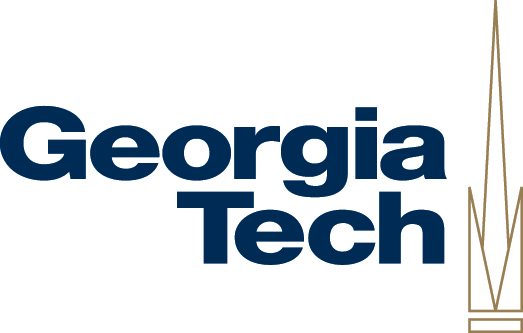Paul Houston
Current Research
Bimolecular Collisions
Imaging
Biofilms
Completed Projects
Complete List of Publications
Information for Prospective Graduate Students and Postdocs
|
|
Electronic-to-Vibrational Energy Transfer We studied electronic-to-vibrational energy transfer, mostly from spin-orbit
excited halogen atoms, for several years. In addition to increasing our understanding of fundamental energy transfer processes,
this project led to an understanding of the mechanism of the continuous wave chemical oxygen-iodine laser.
The figure above shows the scheme we used to show that I* transfers energy to I2 (25< v < 43).
- P. L. Houston, "Observation of the Reaction I*(2P1/2)
+
Br2 IBr + Br*(2P1/2)", Chem. Phys. Lett.
47, 137-41 (1977).
- P. L. Houston and A. J. Grimley, "Electronic to Vibrational Energy Transfer
from
Excited Halogen Atoms," in Electronic Transition Lasers II, Wilson, Suchard,
and Steinfeld, eds., MIT Press, 1977, pp. 257-265.
- A. J. Grimley and P. L. Houston, "Electronic to Vibrational Energy Transfer
from
I(52P1/2): I. HCl, HBr, and NO," J. Chem. Phys.
68, 3366-3376 (1978).
- P. L. Houston, "The Possibility of Laser Pumping via Energy Transfer from or
Reactive Collisions with I(2P1/2)," in High-Power
Lasers and Applications, K.-L. Kompa and H. Walther, eds., Springer-Verlag, 1978,
pp. 81-85.
- A. J. Grimley and P. L. Houston, "Electronic to Vibrational Energy Transfer
from
I(52P1/2): II. H2O, HDO, and
D2O," J. Chem. Phys. 69, 2339-2346 (1978).
- A. J. Grimley and P. L. Houston, "Electronic to Vibrational Energy Transfer
from
I(52P1/2): III. H2, HD, and D2,"
J. Chem. Phys. 70, 4724-4729 (1979).
- A. J. Grimley and P. L. Houston, "Electronic to Vibrational Energy Transfer
from
Br(42P1/2) to H2, HD, and D2,"
J. Chem. Phys. 70, 5184-5189 (1979).
>
- P. L. Houston, "Electronic to Vibrational Energy Transfer from Excited Halogen
Atoms," in Photoselective Chemistry, Part 2, J. Jortner, Ed., 381-418 (1981).
- R. G. Aviles, D. F. Muller, and P. L. Houston, "Quenching of Laser Excited
O2(b1SIGMAg+) by CO2,
H2O, and I2," Appl. Phys. Lett. 37, 358-
360 (1980).
- D.F. Muller, R.H. Young, P.L. Houston, and J.R. Wiesenfeld, "Direct
Observation of
I2 Collisional Dissociation by
O2(b1SIGMAg+)," Appl. Phys.
Lett. 38, 404-406 (1981).
- D. F. Muller and P. L. Houston, "Direct Observation of Electronic-to-Vibrational
Energy Transfer from O2(1SIGMA) to CO2
(NU3)," J. Phys. Chem. 85, 3563-3565 (1981).
- A. T. Young and P. L. Houston, "The I(2P1/2) +
O2 = I(2P3/2) + O2(1 )
Equilibrium," J. Chem. Phys. 78, 2317-2326 (1983).
- G. E. Hall, W. J. Marinelli, and P. L. Houston, "Electronic-to-Vibrational Energy
Transfer from I*(52P1/2) to I2
(25<v<43)," J. Phys. Chem. 87, 2153-2161 (1983). pdf format
- Z-N. Gu, A. T. Young, and P. L. Houston, "Deactivation of I(5
2P«) by CF3I, CH3I,
C2H5I, and CH4," Int. J. Chem. Kin.
16, 669-677 (1984).
- G. E. Hall, S. Arepalli, P. L. Houston, and J. R. Wiesenfeld, "Collisional
Quenching
of Excited Iodine Atoms (5p5 2P1/2) by
Cl2 in a Flow System," J. Chem. Phys. 82, 2590-2597
(1985).
This work was supported by the Air Force Office of Scientific Research

|




